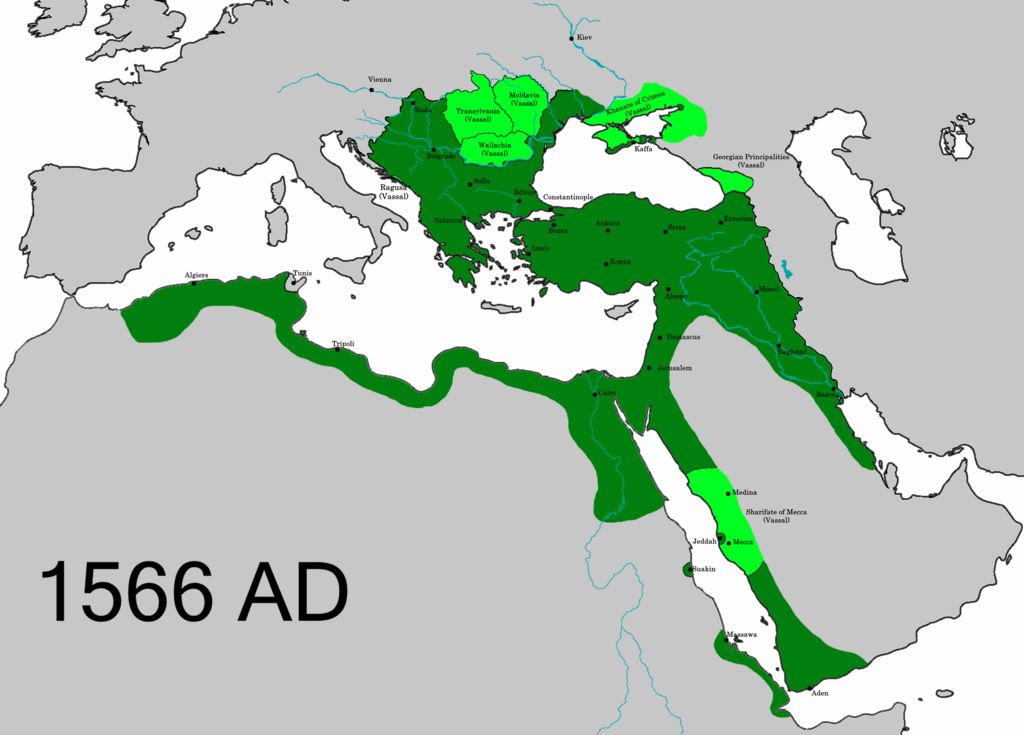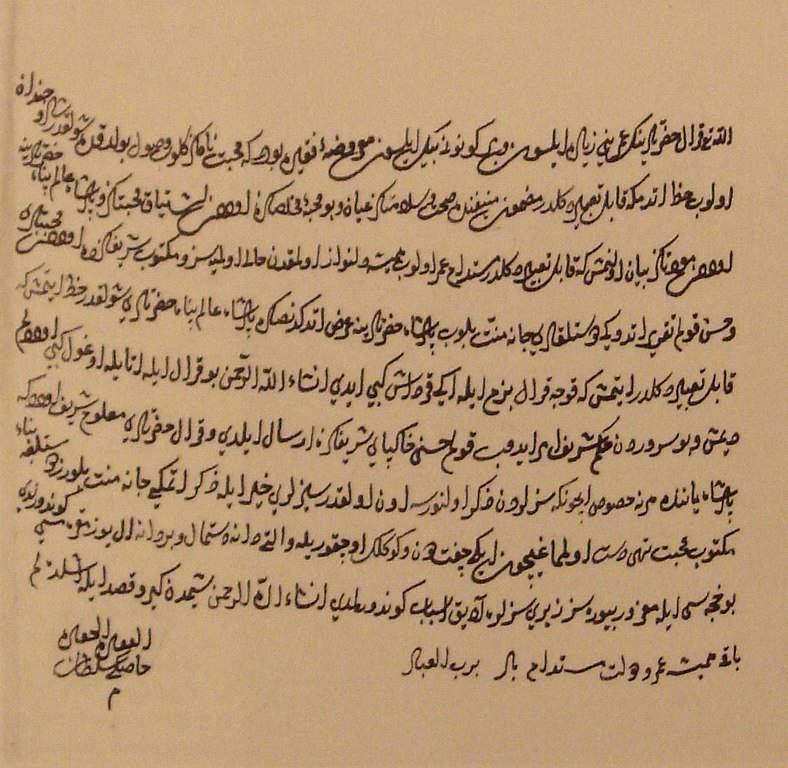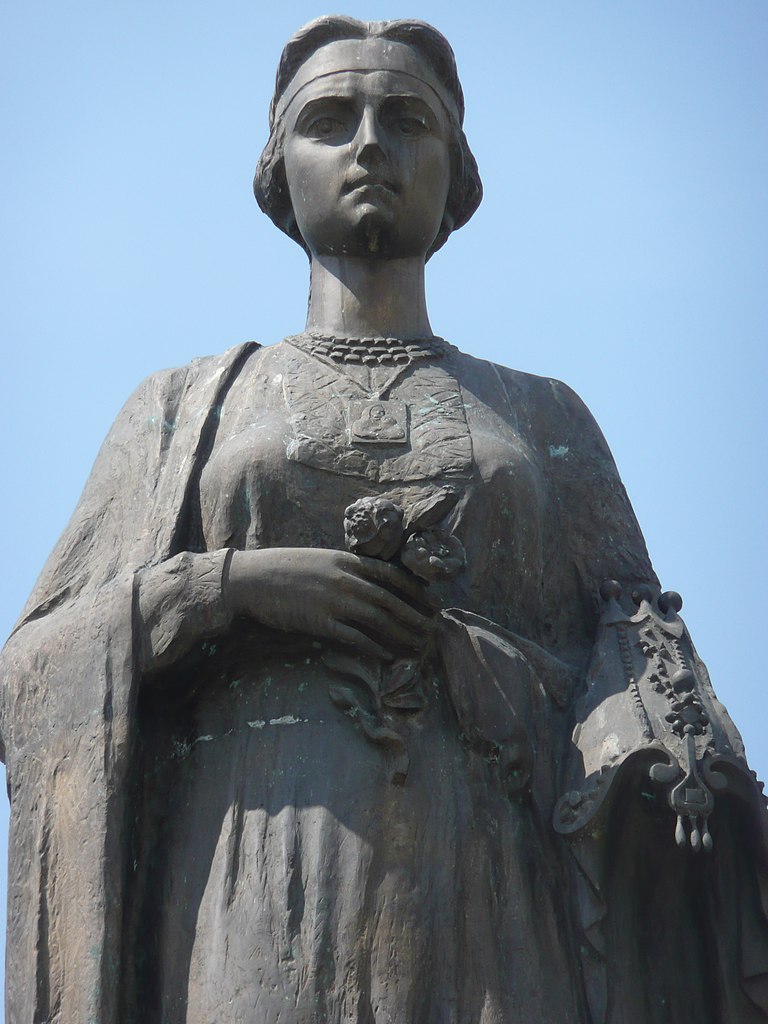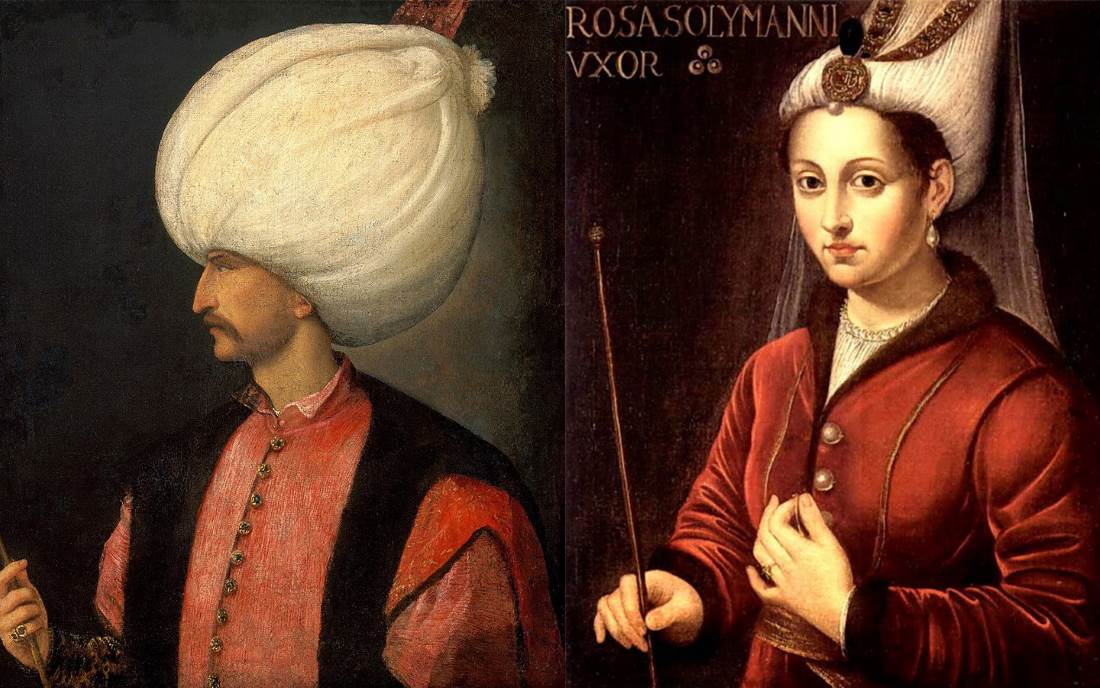Suleiman the Magnificent and Roxelana share one of history’s most influential and captivating love stories. Emerging from her early life as a slave in Suleiman’s palace, Roxelana’s transformation into the most powerful woman in the Ottoman Empire is a tale of love, power, and political intrigue. Their unique bond not only altered the dynamics of the Ottoman court but also influenced the political landscape of the empire.
Roxelana: From Slave to Queen
The journey of Roxelana, also known as Hurrem Sultan, from the status of a slave to the pinnacle of power as the Sultan’s wife is a story filled with intrigue, ambition, and resilience. While much of her early life remains enshrouded in mystery, it is believed that she was captured during one of the Ottoman raids in her homeland, possibly in modern-day Ukraine, and was brought to the Ottoman capital as a slave.

Once she arrived at the imperial harem in Topkapi Palace, Roxelana quickly distinguished herself. The harem, a fiercely competitive environment, was where Sultan’s concubines and wives resided, and every one sought the favor of the Sultan. However, Roxelana’s beauty, intelligence, and charm set her apart. Her charisma wasn’t her only asset; she was also known for her shrewdness and cunning.
There are tales, perhaps apocryphal, of Roxelana orchestrating plots to outmaneuver her rivals within the harem. One such story suggests she may have played a role in the ‘burning of the harem,’ an event that eliminated many of her competitors. While the authenticity of such stories remains debated, they underscore Roxelana’s determination to rise above her station.
Suleiman’s infatuation with Roxelana was evident early on, which naturally generated jealousy and unrest among the other women in the harem. Over time, Roxelana’s relationship with Suleiman grew stronger, and she bore him several children, further solidifying her position.
The pinnacle of her ascent came when Suleiman did something previously unthinkable: he married Roxelana. Until then, Ottoman Sultans did not wed their concubines. This act broke centuries of tradition and solidified Roxelana’s transformation from a slave to the most powerful woman in the empire, the legal wife of the Sultan, and the Queen Mother of the Ottoman dynasty.
This marriage was not just a personal decision for Suleiman; it was also a political one. By marrying Roxelana, Suleiman demonstrated a significant break from tradition, indicating his intention to govern in a manner distinct from his predecessors. It also showed the depth of his commitment and love for Roxelana, elevating her to an unparalleled status and influence in the empire’s annals.
The Influence of Roxelana on the Sultan and the Politics of the Ottoman Empire
Roxelana, also known as Hürrem Sultan, was not merely an ordinary concubine in the harem of Sultan Suleiman the Magnificent. Her position and role at the court went far beyond what one might initially assume. Through her relationship with Suleiman, she garnered immense influence, not only over the personal life of the sultan but also on the political decisions he made. While many in the harem were prone to intrigue and power plays, Roxelana managed to forge a deep emotional bond with Suleiman, enabling her active participation in state affairs.
Her influence was so profound that she even utilized her power to send letters to foreign rulers. One such instance was a letter she sent to King Sigismund, congratulating him on his accession to the throne. This act was not merely a casual congratulation; it was a political gesture. A letter from a sultan’s concubine to a foreign monarch was a clear indication of her position of power within the Ottoman Empire.

In addition to her political influence, their mutual correspondence while Suleiman was on campaigns testifies to the depth of their emotional connection. In one of her letters, Roxelana wrote: “My lord, part of my soul, who art the sun of my land and the foundation of my happiness. If only you knew how, due to our separation, my soul burns and how it tears apart, and how my love for you knows neither day nor night, sinking helplessly into a sea of longing…” To which Suleiman replied: “To your love, last night I sent my feelings. Allow me that when I merely observe you, your beauty appears to me as a nocturnal butterfly. My beloved, you are the light, and I am the butterfly in your love. Just as one would want to catch the bird of the heart in the rose garden of beauty, so is the state of a lover who would get caught in the net of love.” This exchange of letters not only reveals the profound emotional bond between the two but also indicates her unusually high standing within the empire.
The Legacy of Roxelana
In the intricate tapestry of the Ottoman court, Roxelana’s prominence stands out unmistakably. As her influence burgeoned, many were taken aback by her swift rise in stature. The Venetian ambassador, Da Zara, penned his observations, stating: “He (Suleiman) loves her so deeply and is so devoted to her that all his subjects are astonished and say that she has bewitched him. They call her ‘ziadi’ or a witch. Because of this, she and her children are detested both in the court and the army, but no one dares speak against her, for he loves her. I personally have only heard ill of her and her children, while only good is spoken of the first-born (Mustafa) and his mother (Mahidevran Gülbahar).”

Roxelana bore Suleiman six children, and her influence played a pivotal role in the struggles for succession among the sultan’s progeny. Determined to secure the best for her offspring, Roxelana navigated the treacherous waters of court politics. Her maneuvers ensured the ascent of her son, Selim, to the throne, overshadowing the prospects of Suleiman’s earlier-born sons by other women.
Despite her significant impact on the political trajectory of the empire, public opinion of Roxelana remained divided. While her undeniable influence and the sultan’s unwavering affection for her were apparent to all, many viewed her rise and the subsequent dominance of her lineage with suspicion and resentment.
Historical Challenge: Can You Conquer the Past?
Answer more than 18 questions correctly, and you will win a copy of History Chronicles Magazine Vol 1! Take our interactive history quiz now and put your knowledge to the test!

